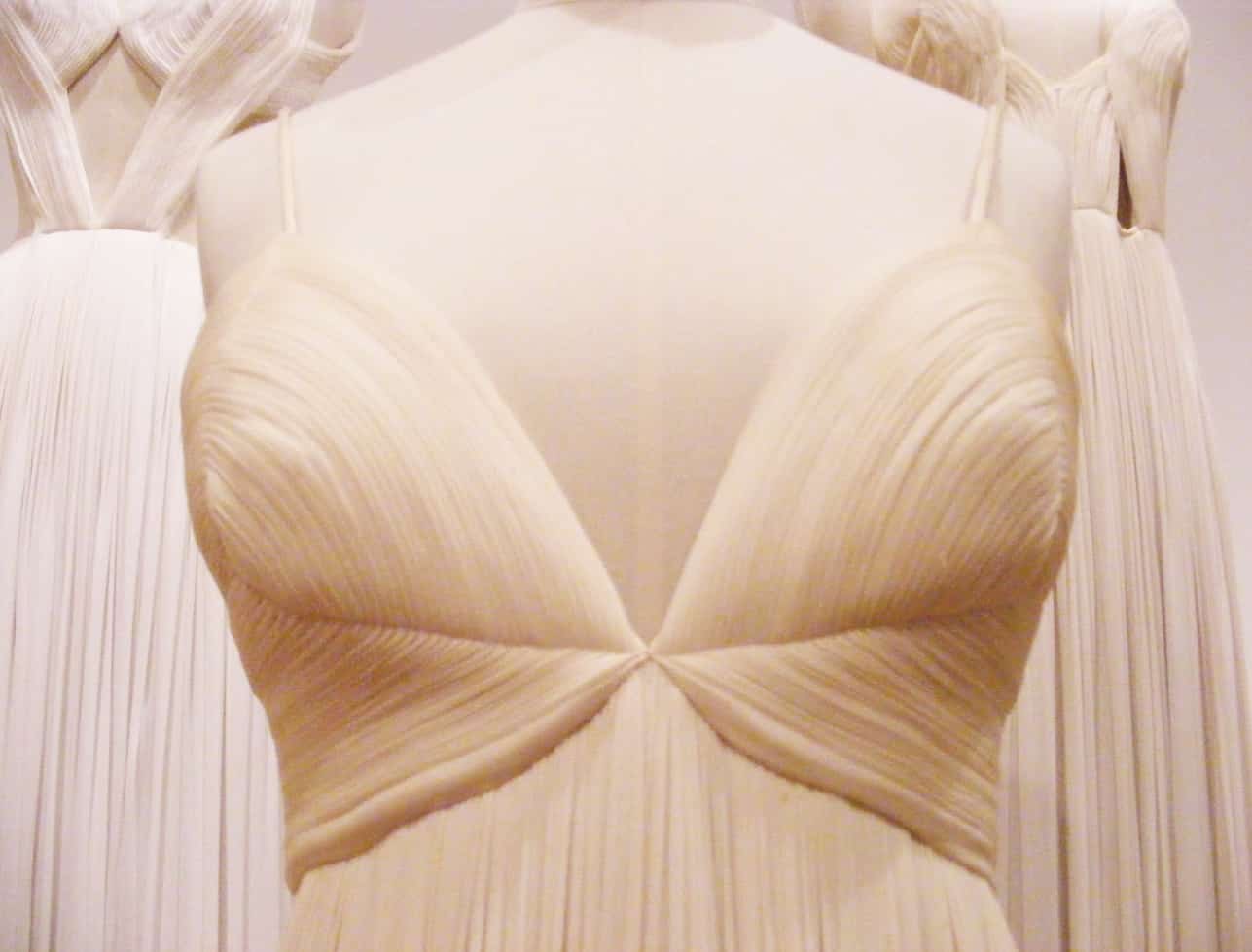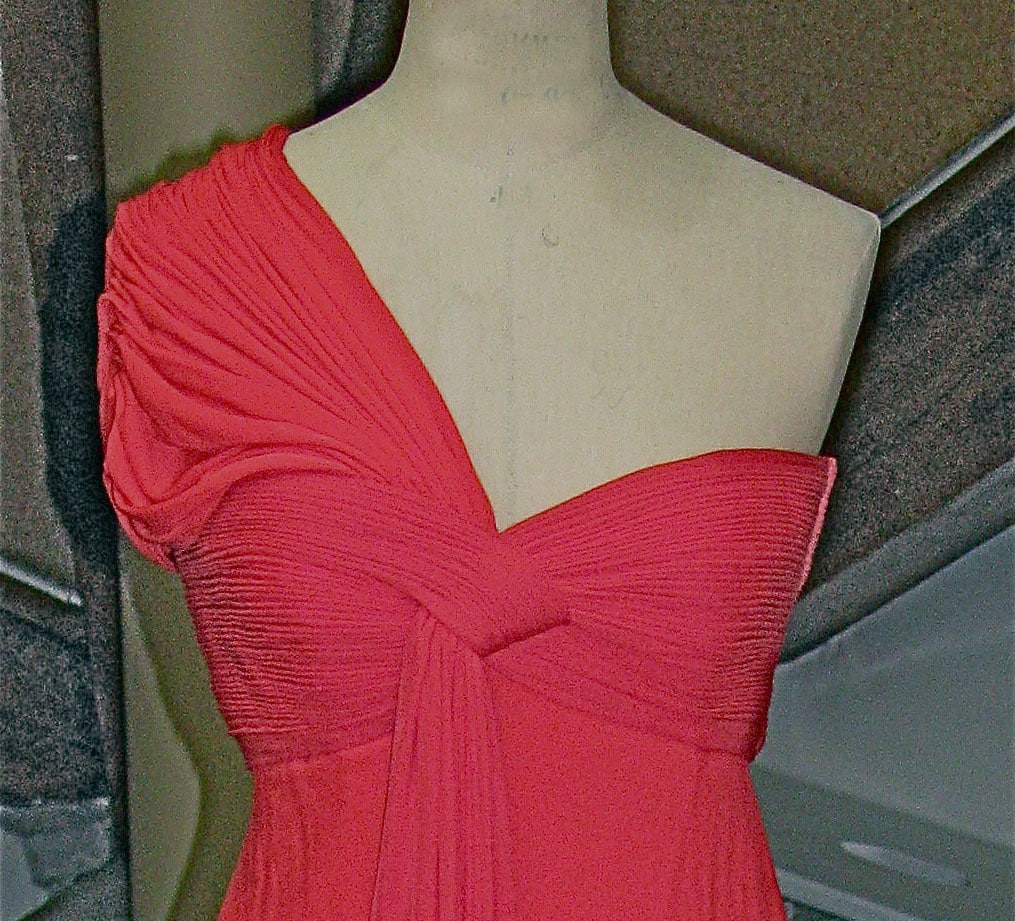 Turn off FB news feed & Twitter. Shun FB hate groups & cults. Believe only in trusted, verified sources — such as Mme. Bridget. As one of the last members of the Mme. Grès atelier, she taught me how to create Grès pleats. Here are 7 easy steps to make them.
Turn off FB news feed & Twitter. Shun FB hate groups & cults. Believe only in trusted, verified sources — such as Mme. Bridget. As one of the last members of the Mme. Grès atelier, she taught me how to create Grès pleats. Here are 7 easy steps to make them.
- Cover the right side of the mannequin’s bodice with paper.
- Line up two layers of silk organza over the pattern for one bust. Pin to hold.
- Thread trace the pattern to the silk. Choose an embroidery needle. Use one strand of contrasting thread.
- Line up the lines of the dart. Join with ¼” running stitches. Choose an embroidery needle. Use one strand of matching thread. Start at the dart point.
- Trim the dart down to ¾”. Press down.
- Place the organza on the form. Match the CF and breast point. Pin in several places to hold in place.
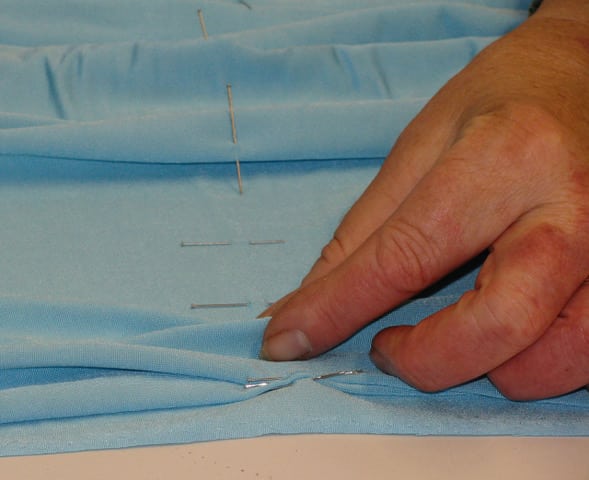
- Fold a 24” piece of ½”-wide rayon or silk fabric in half lengthwise.Press.
- Start 2” beyond the CF point. Place the fold of the ribbon along the upper thread traced line. Pin every 2”. Continue until 2” beyond the SS.
- Repeat for the bottom thread traced line. Make sure the binding pieces cross exactly at the CF point.
- Join the binding to the organza with ¼” running stitches at the top and bottom of the long edge of each binding. Use one strand of matching thread.
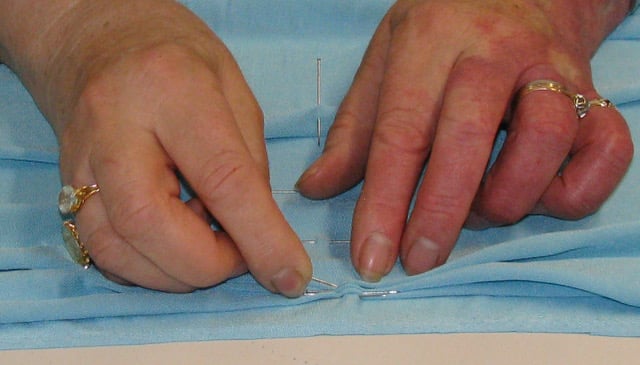
- Press a 24”x24” square of silk jersey.
- Mark the center of the crossgrain with pins.
- Start 1 cm from one side at the center. Place a pin exactly at every 3 cm.
- Start with the 2nd Bring each pin up to make a pleat. Expose 2 mm of the previous pleat. Remove previous pins as you fold. Place a pin on the edge of each pleat.
- Pick stitch the pleats in place along the centerline. Catch just a thread of the pleat fold as you stitch. Make the underside as clean as the outside.
The first three steps should take you about 2 hours.
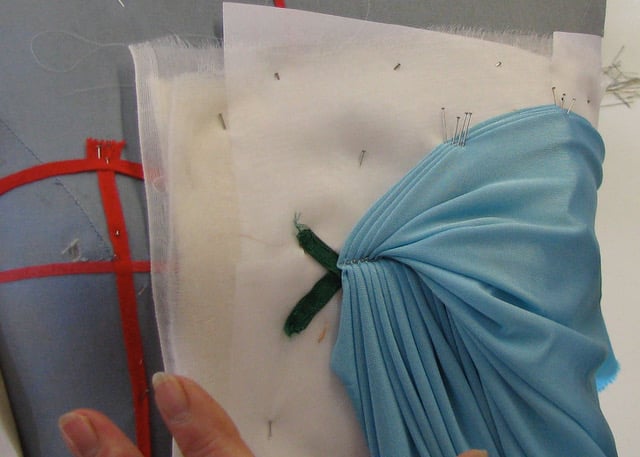
- Place the centerline on a straight line from the CF to the breast point.
- Pin each pleat onto this line.
- Start with the top half beyond the centerline. Fold under 3/8” of the top edge. Gently stretch as you place it to hide the top edge of the binding fold. Pin every 2”.
- Place each pleat for the top. Make sure to stay on grain and leave only 2 mm of the previous pleat showing. Keep the pleats smooth. Stretch as you place. Crowd the pleat as they approach the SS.
- You should have only 3/8” fabric overlapping the centerline from bust point to SS.
This step should take you about 4 hours.
- Repeat for the bottom half of the fabric.
- Fold under the remaining 3/8” of the bottom edge of the fabric to cover the bottom edge of the binding fold.
This step should take you about 4 hours.
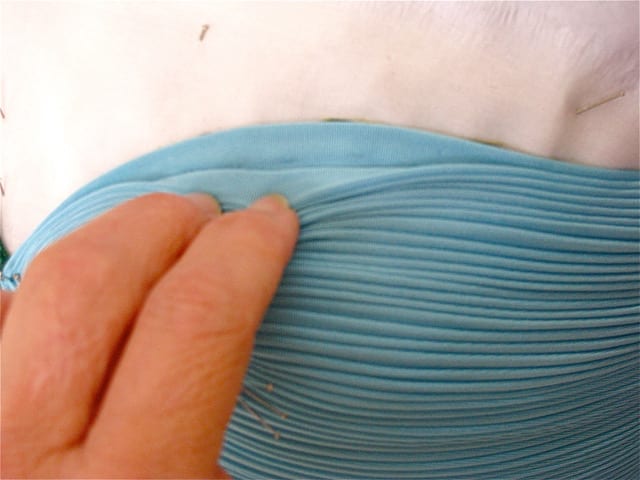
- Chose a 1” fine curved needle.Use one strand of matching thread. Start with the top half. Backstitch two layers of pleats at a time. Work from SS to CF. Be sure not to stitch through the paper.
This step should take you about 4 hours.
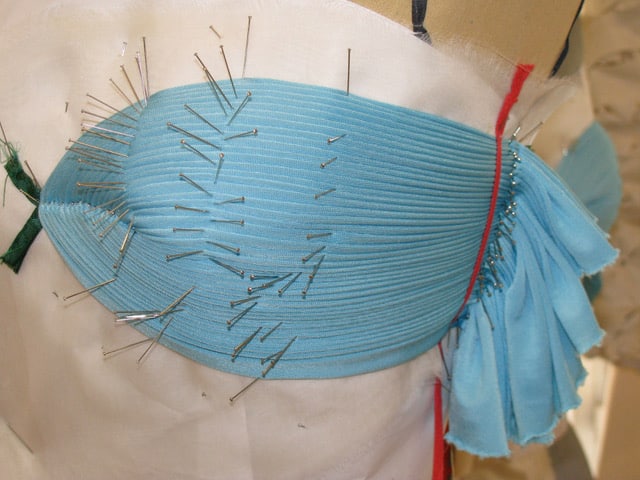
- Repeat for the bottom half of the fabric.
This step should take you about 4 hours.
Congratulations! After 18 hours, you have completely one breast section of a Mme. Gres dress. Now proceed to the other breast. Then drape the rest of the garment.
